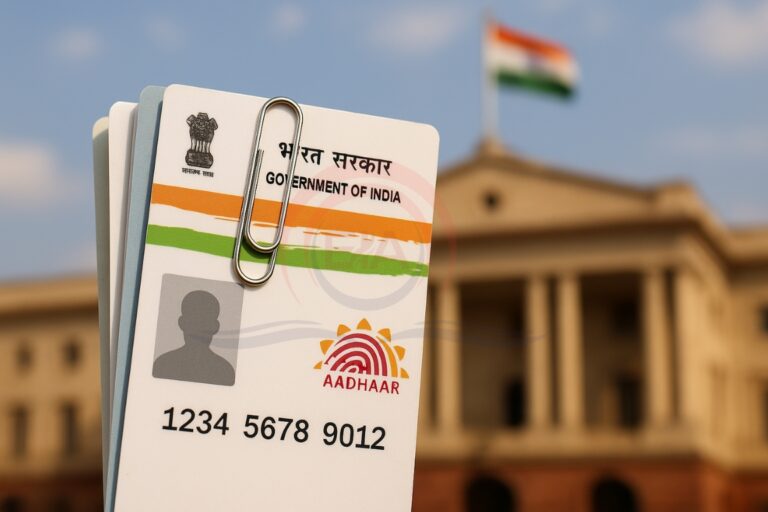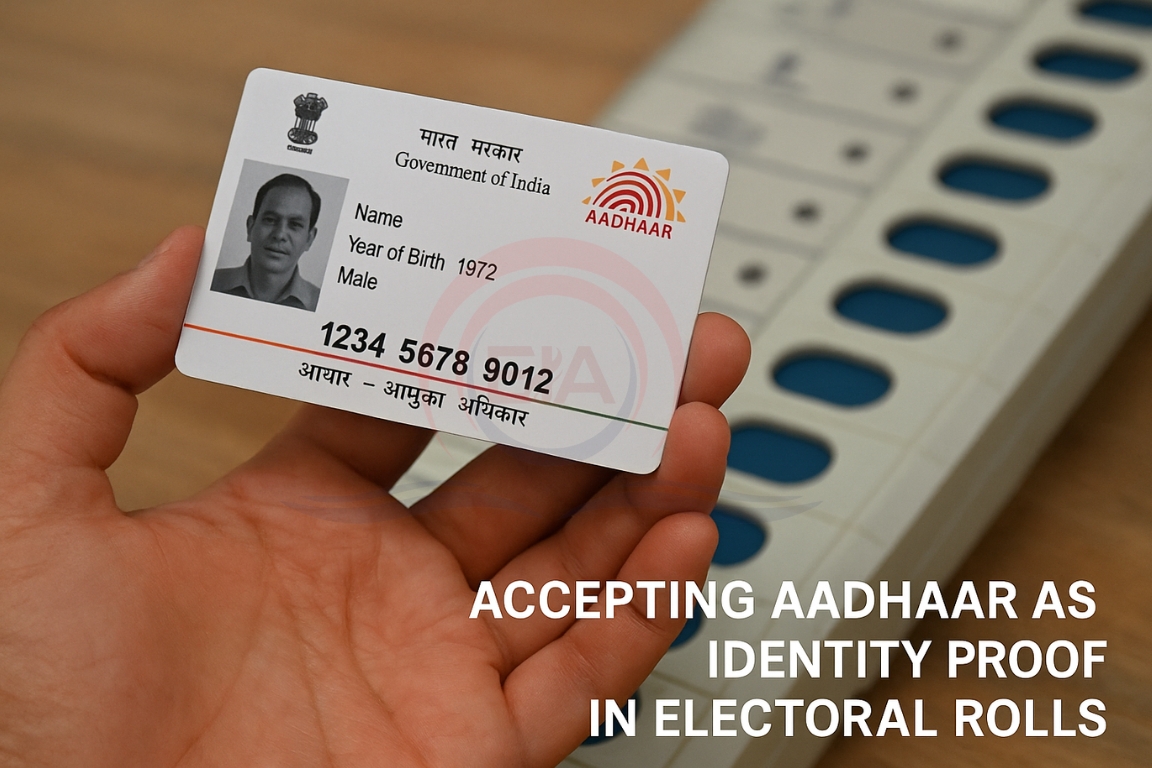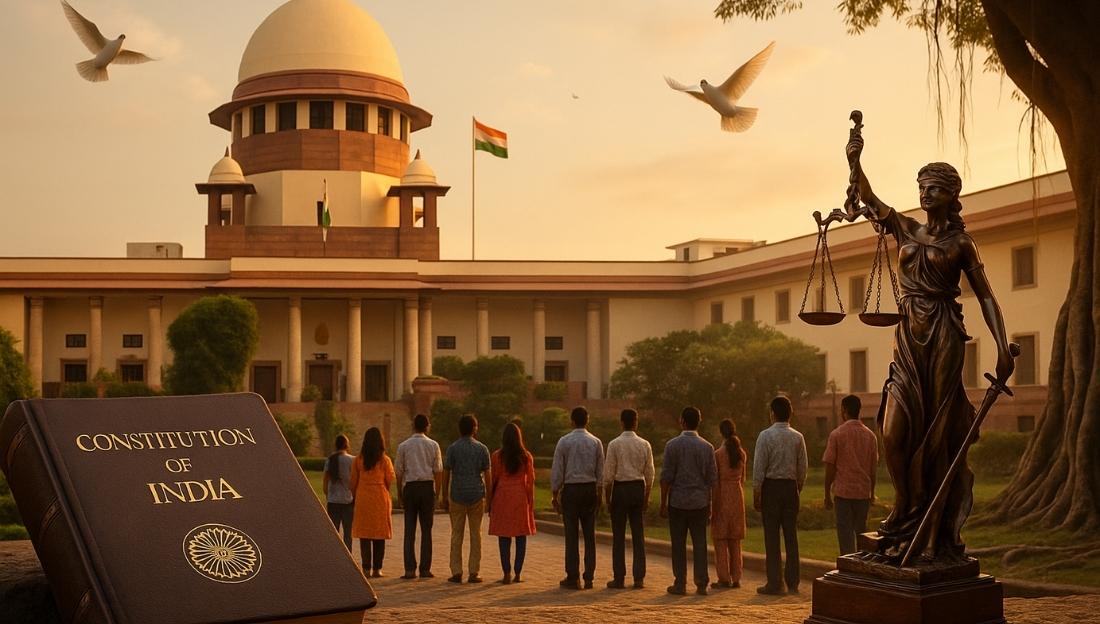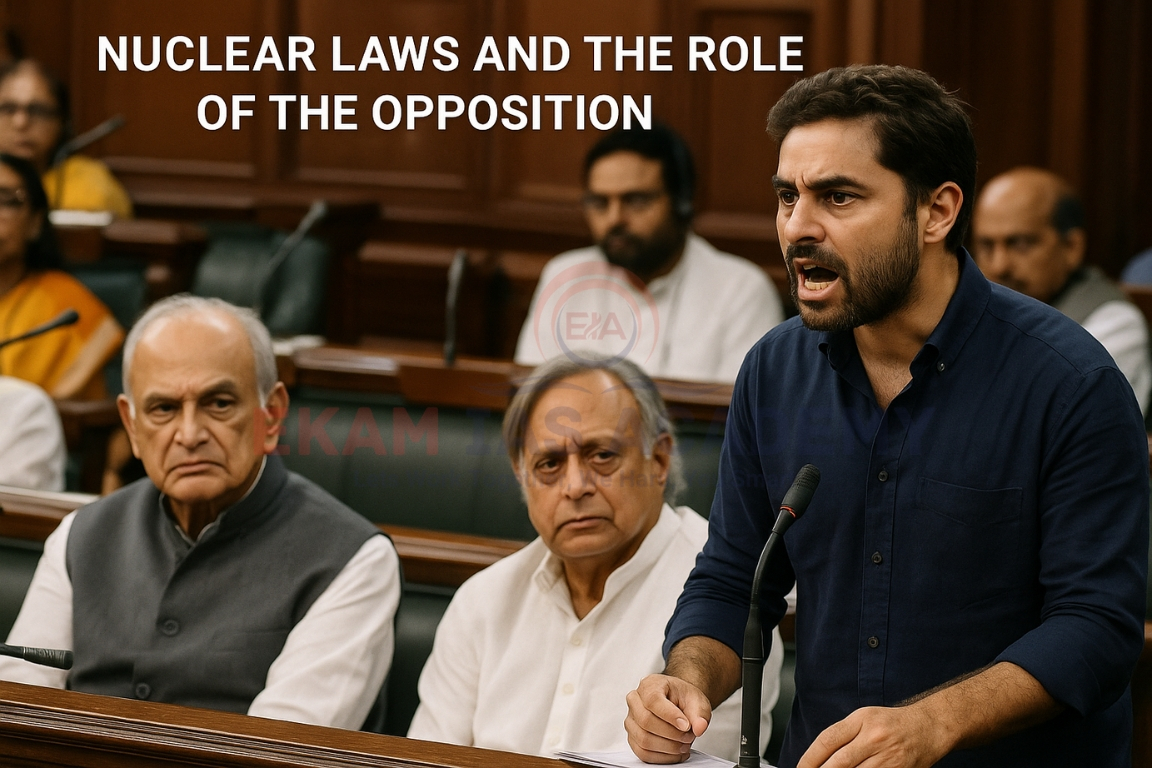The Supreme Court has directed the Election Commission (EC) to allow Aadhaar as an additional identity proof for filing claims or objections in the revision of electoral rolls in Bihar. The court clarified that Aadhaar will only serve as proof of identity, not as proof of Indian citizenship.
Background of the Issue
- The Election Commission had listed 11 documents that citizens could use as proof of identity for inclusion or exclusion in voter rolls.
- Petitioners questioned why Aadhaar was not included, even though other non-citizenship documents were permitted.
- Around 65 lakh voters were excluded from the draft rolls in Bihar, prompting legal concerns over the fairness of the process.

Supreme Court’s Observations
- Aadhaar, like most of the other 11 documents, is not proof of citizenship but can serve as an identity document.
- Only passport and birth certificate can be treated as citizenship-related proof.
- The Bench highlighted that since Aadhaar is widely used and verifiable, there was no valid reason to exclude it.
- The SC emphasized that Aadhaar should be used only for identity verification and not to determine nationality.
Directions to the Election Commission
- The EC must include Aadhaar as the 12th valid document for identity proof during the Special Intensive Revision (SIR) of electoral rolls in Bihar.
- Electoral officers at every level (Registration Officers to Booth Level Officers) must accept Aadhaar from applicants submitting claims or objections.
- EC officials are permitted to check the authenticity of Aadhaar in the same manner as with other documents.
- The EC was also asked to issue clear instructions to ensure smooth implementation.
Context in Bihar
- Bihar has 7.89 crore registered voters.
- Of these, nearly 65 lakh names were missing in the draft rolls published on August 1.
- The deadline for filing claims and objections was September 1, but the EC later clarified that applications could be considered beyond the cut-off date.
Significance of the Ruling
- Provides relief to large sections of voters by easing documentation requirements.
- Enhances inclusivity in the voter registration process.
- Reiterates the legal position that Aadhaar is not proof of citizenship, ensuring safeguards against misuse.
- Reinforces the importance of transparency in electoral roll management, especially in poll-bound states.
Aadhaar
What is Aadhaar?
- A 12-digit unique identification number issued to residents of India based on their biometric and demographic data.
- Serves as proof of identity and residence, but not citizenship.
When did Aadhaar come?
- The Aadhaar project was launched in 2009 by the Government of India.
- The first Aadhaar number was issued in 2010.
Who regulates Aadhaar?
- Managed and regulated by the Unique Identification Authority of India (UIDAI).
Which Ministry?
UIDAI functions under the Ministry of Electronics and Information Technology (MeitY).
Conclusion:
The Supreme Court’s order balances voter inclusivity with legal safeguards by permitting Aadhaar as proof of identity. While it widens access for citizens in electoral processes, it also maintains the distinction that Aadhaar does not establish Indian citizenship.





